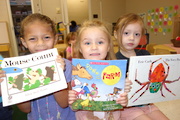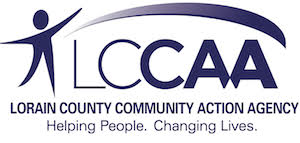
Reading, Talking Can Bridge Word Gap
posted 11/6/19 -- Reading and talking to children stimulates the part of the brain that helps them understand the meaning of language and build literacy skills.Children who hear rich vocabulary through conversation and books have an advantage in learning to read and write. Children who do not hear rich vocabulary may struggle.
This “word gap” has been documented by Stanford University who found that by three years of age, there is a 30 million word gap between children from the wealthiest families and those from the poorest families.
The American Academy of Pediatrics also found that one in three American children start kindergarten without the skills they need to learn to read.
The good news is families have control over the language development of their child! Parents are encouraged to talk to children where ever they are: the grocery store, laundromat, car wash, or the park. Talk about the names of the things seen and heard or talk about feelings. Converse about each other’s day.
Additionally, parents are encouraged to spend 15 minutes a day reading to their children. Read old books, new books, picture books, and even parts of chapter books. Seeing their parents reading for pleasure also benefits children.
Working together, parents and teachers can bridge the word gap and change the statistics on literacy. For resources on reading with children, contact any Head Start center.
